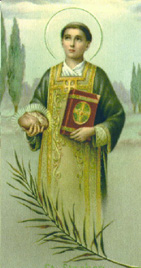We ask you, urgently: don’t scroll past this
Dear readers, Catholic Online was de-platformed by Shopify for our pro-life beliefs. They shut down our Catholic Online, Catholic Online School, Prayer Candles, and Catholic Online Learning Resources—essential faith tools serving over 1.4 million students and millions of families worldwide. Our founders, now in their 70's, just gave their entire life savings to protect this mission. But fewer than 2% of readers donate. If everyone gave just $5, the cost of a coffee, we could rebuild stronger and keep Catholic education free for all. Stand with us in faith. Thank you.Help Now >
Inscription on ancient jar from David and Goliath era finally deciphered
FREE Catholic Classes
The Israel Antiquities Authority has announced that archaeologists have finally deciphered the ancient inscription engraved on the pieced jar from King David's ere. The ancient jar, in fragments, is one of the unearthed ceramics during the excavation in the Valley of Elah, which is the famous site were David fought Goliath. According to the Blaze, the inscription is read as Eshba'al Ben Bada, a name they are making connections with in the Bible, particularly in the Book of Samuel I.
Highlights
Catholic Online (https://www.catholic.org)
6/18/2015 (9 years ago)
Published in Middle East
Keywords: King David Era, Bible, Book of Samuel I, Israel, Ancient Jar, Inscription, Eshba'al
MUNTINLUPA, PHILIPPINES (Catholic Online) - During the excavation, archaeologists observed that the fragments collected have some text written in Canaanite script. Experts stipulate the name engraved is something of a historical value, particularly during the time of King David.
Researchers pointed out that this is the first time the name "Eshaba'al" is encountered in an ancient artifact, although it has appeared written in the Scriptures. Also known as Ish-bosheth, in I Samuel, he was the only surviving son of King Saul after the Battle of Gilboa, but the experts agreed that the jar and the text were not in honor of the late king.
They also noted that the name went out of circulation by the end of King David's rule.
"It is interesting to note that the name Eshbaʽal appears in the Bible, and now also in the archaeological record, only during the reign of King David, in the first half of the tenth century BCE," said archaeologist Yosef Garfinkel at the Hebrew University.
He added that the name "Beda" was not mentioned in ancient texts, even in the Bible, suggesting that it is to be considered unique.
Researchers believe the engraved name belonged to the owner of a large agricultural land where jars have the name inscribed, considering the ownership of the produce stored inside.
However, archaeologists have also connected the name change from Eshba'al to Ish-bosheth from the negative image of the deities worshipped by the Canaanites, the Ba'al.
---
'Help Give every Student and Teacher FREE resources for a world-class Moral Catholic Education'
Copyright 2021 - Distributed by Catholic Online
Join the Movement
When you sign up below, you don't just join an email list - you're joining an entire movement for Free world class Catholic education.

-

-
Mysteries of the Rosary
-
St. Faustina Kowalska
-
Litany of the Blessed Virgin Mary
-
Saint of the Day for Wednesday, Oct 4th, 2023
-
Popular Saints
-
St. Francis of Assisi
-
Bible
-
Female / Women Saints
-
7 Morning Prayers you need to get your day started with God
-
Litany of the Blessed Virgin Mary
Daily Catholic
 Daily Readings for Thursday, December 26, 2024
Daily Readings for Thursday, December 26, 2024 St. Stephen: Saint of the Day for Thursday, December 26, 2024
St. Stephen: Saint of the Day for Thursday, December 26, 2024 Rosary Prayers: Prayer of the Day for Thursday, December 26, 2024
Rosary Prayers: Prayer of the Day for Thursday, December 26, 2024- Daily Readings for Wednesday, December 25, 2024
- St. Eugenia: Saint of the Day for Wednesday, December 25, 2024
- Christmas Prayer: Prayer of the Day for Wednesday, December 25, 2024
![]()
Copyright 2024 Catholic Online. All materials contained on this site, whether written, audible or visual are the exclusive property of Catholic Online and are protected under U.S. and International copyright laws, © Copyright 2024 Catholic Online. Any unauthorized use, without prior written consent of Catholic Online is strictly forbidden and prohibited.
Catholic Online is a Project of Your Catholic Voice Foundation, a Not-for-Profit Corporation. Your Catholic Voice Foundation has been granted a recognition of tax exemption under Section 501(c)(3) of the Internal Revenue Code. Federal Tax Identification Number: 81-0596847. Your gift is tax-deductible as allowed by law.





 Daily Readings for Thursday, December 26, 2024
Daily Readings for Thursday, December 26, 2024 St. Stephen: Saint of the Day for Thursday, December 26, 2024
St. Stephen: Saint of the Day for Thursday, December 26, 2024 Rosary Prayers: Prayer of the Day for Thursday, December 26, 2024
Rosary Prayers: Prayer of the Day for Thursday, December 26, 2024

